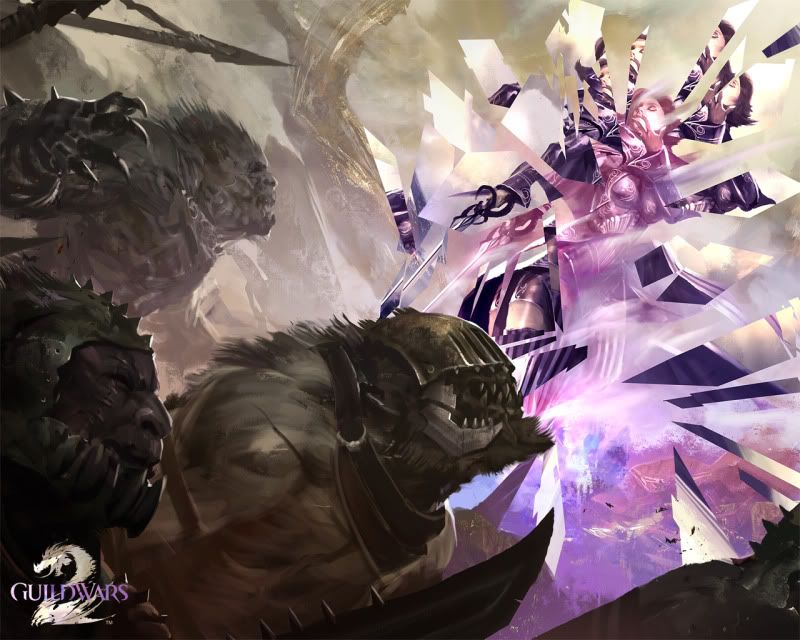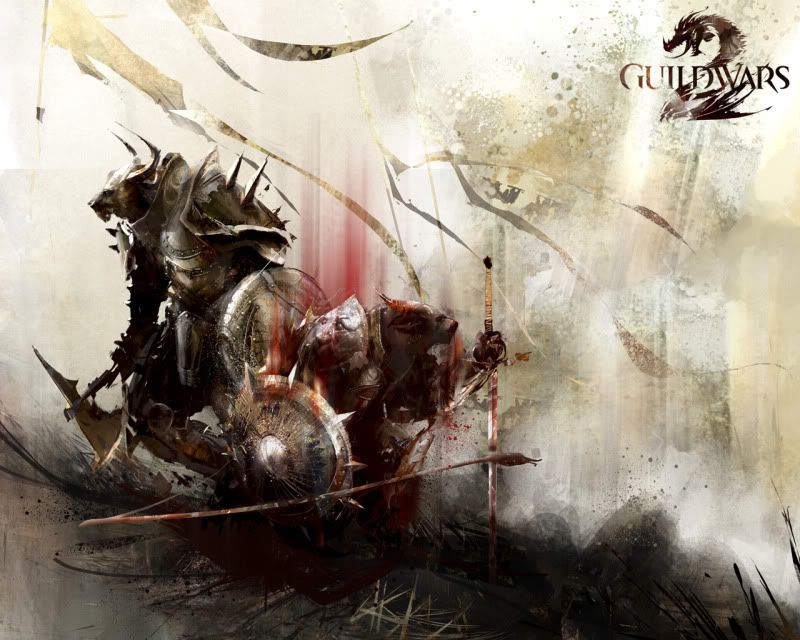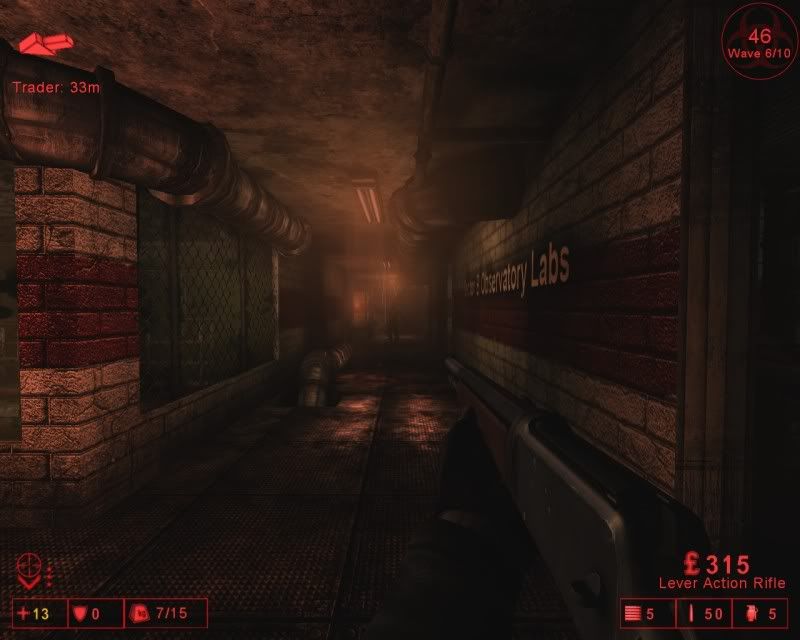
Has it really been almost a year since I last discussed Guild Wars 2? Sheesh, it’s like I’ve been busy or something. But the release of the game is now a mere 20 days away, and I am finding myself a little flummoxed with indecision. Normally, with games such as this, I will have a main character with whom I’ll do the bulk of my adventuring and role-playing, and several alts with which I’ll dabble. But with the game eschewing traditional ideas of class roles and boasting a diverse stable, I’m not sure where I’ll begin. I’ve discussed the races previously, and now it’s time to tackle the professions.
The Warrior, Ranger, and Thief professions are, perhaps, the most traditional ones that will be available. Like all professions in Guild Wars 2, however, each has access to a variety of weapons, and the equipment you carry determines the skills you have available. Warriors are almost always in-your-face damage dealers, but it’s also possible to carry a shield for some damage mitigation or switch to a rifle when you want to deal damage at range. Similarly, while Rangers are traditionally striking from afar, they can also use dual axes or a sword and dagger combination to get up close and personal. While a Thief can go the traditional daggers route or keep their distance with a brace of pistols, they also can actively steal from an opponent, gaining a situational weapon and skills to change up their role on the fly.
A few of the professions are concerned with controlling the battlefield. Engineers use turrets, mines, grenades, and elixirs tossed from their tool belts to either help their allies or hinder their foes. The tools available change based on the loadout the Engineer has chosen. Guardians, as well, have abilities that can assist those around them or wreck havoc on the enemy. The Guardian combines their variety of weapons with the drawing out of one of three virtues – Courage, Justice, or Resolve – to produce effects that hinder enemy movement, protects allies, or turns the very ground beneath their feet into the best place to be for carrying on the fight.
The aforementioned professions fall into the categories of ‘Soldier’ or ‘Adventurer’. ‘Scholars’ are what we would traditionally consider “magic-users” but even among these professions, there is diversity and depth. Elementalists focus on attacks that utilize one of the four elements – Earth, Air, Water, or Fire – and the character can switch between them at will just as they can their equipment. Necromancers steal the life force of their foes, using it to fuel their dark magic and weaken the enemy while summoning minions to do their bidding. Last but never least, the Mesmer is a master of illusion and misdirection, distracting the enemy with clones and phantasms that can shatter and cause all sorts of mayhem for anybody unfortunate enough to be standing nearby.
The professions that hold the most interest for me are Engineer, Guardian, and Mesmer. Engineer should come as no surprise since I played ranged classes in previous MMOs almost exclusively. However, the Guardian’s various Virtues and variety of ways to support the party while controlling opponents is very appealing, as is the Mesmer’s plethora of illusionary abilities. I also have character write-ups for each of these classes. I will simply have to pick one when Guild Wars 2 releases in just a few short weeks…






